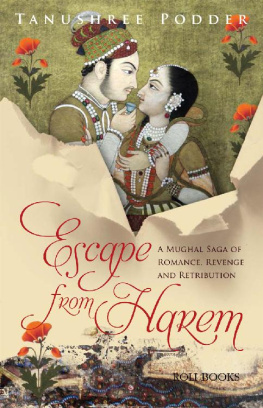Table of Contents
Theory and History of Literature
Edited by Wlad Godzich and Jochen Schulte-Sasse
Volume 1. Tzvetan Todorov Introduction to Poetics
Volume 2. Hans Robert Jauss Toward an Aesthetic of Reception
Volume 3. Hans Robert Jauss Aesthetic Experience and Literary Hermeneutics
Volume 4. Peter Brger Theory of the Avant-Garde
Volume 5. Vladimir Propp Theory and History of Folklore
Volume 6. Edited by Jonathan Arac, Wlad Godzich, and Wallace Martin
The Yale Critics: Deconstruction in America
Volume 7. Paul de Man Blindness and Insight: Essays in the Rhetoric of Contemporary Criticism 2nd ed., rev.
Volume 8. Mikhail Bakhtin Problems of Dostoevskys Poetics
Volume 9. Erich Auerbach Scenes from the Drama of European Literature
Volume 10. Jean-Franois Lyotard
The Postmodern Condition: A Report on Knowledge
Volume 11. Edited by John Fekete The Structural Allegory:
Reconstructive Encounters with the New French Thought
Volume 12. Ross Chambers
Story and Situation: Narrative Seduction and the Power of Fiction
Volume 13. Tzvetan Todorov Mikhail Bakhtin: The Dialogical Principle
Volume 14. Georges Bataille Visions of Excess: Selected Writings, 1927 1939
Volume 15. Peter Szondi On Textual Understanding and Other Essays
Volume 16. Jacques Attali Noise
Volume 17. Michel de Certeau Heterologies
Volume 18. Thomas G. Pavel
The Poetics of Plot: The Case of English Renaissance Drama
Volume 19. Jay Caplan Framed Narratives: Diderots Genealogy of the Beholder
Volume 20. Jean-Franois Lyotard and Jean-Loup Thbaud Just Gaming
Volume 21. Malek Alloula The Colonial Harem
Copyright 1986 by the University of Minnesota. Translation of Le Harem Colonial: Images dun sous-rotisme copyright 1981 by Editions Slatkine, Genve-Paris.
All rights reserved. No part of this publication may be reproduced, stored in a retrieval system, or transmitted, in any form or by any means, electronic, mechanical, photocopying, recording, or otherwise, without the prior written permission of the publisher.
Published by the University of Minnesota Press,
111 Third Avenue South, Suite 290, Minneapolis, MN 55401-2520.
Printed in the United States of America on acid-free paper.
Designed by Gwen M. Willems.
Fifth printing, 1997
Library of Congress Cataloging-in-Publication Data
Alloula, Malek.
The colonial harem.
(Theory and history of literature ; v. 21)
Translation of: Le harem colonial.
Bibliography: p.
1. WomenAlgeriaSocial conditions. 2. Postal cardsAlgeria. 3. Photography of women.
4. Harem.
I. Title. II. Series.
HQ1791.5.A7613
1986
305.40965
85-16527
ISBN-978-1-452-91578-4 ISBN 0-8166-1384-2 (pbk.)
The University of Minnesota is an equal-opportunity educator and employer.
This essay, which owes much
to Wardiya and to Hayyem,
is dedicated to the memory of
Roland Barthes
Introduction
Scene 60. Blockade rue de la Lyre. Outside. Day.
Djamila is tense, pale, her features are strained. Her eyes seem even larger with make-up. Now, at the blockade at rue de la Lyre the Casbah exit is blocked. An Algerian has been discovered without documents. He argues, shouts, and says that he wants to go back.
Incoherent Voices.
The soldiers try to catch him, he struggles to get free. Meanwhile the people push forward in protest. Two soldiers catch the Algerian and drag him bodily into the guard posts. The flow of people continues.
Djamila steps forward, holding the cosmetic-case with both of her hands. She doesnt know how to carry it, and from time to time she changes her position. She realizes that she looks awkward. Its now her turn. The soldiers tone is arrogant. The previous scene has made them nervous. An officer signals her to pass, then points to the cosmetic-case.
Officer: Whats inside?
Instinctively, Djamila lifts the case and looks at it; she feels herself failing, but makes an effort to answer.
Djamila: Here?
Officer: There ...
Djamila uses all her strength to smile and she succeeds. Her eyes light up defiantly.
Djamila (provocatively): Nothing.
The officer signals her to pass.
(From the film The Battle of Algiers, directed by Gillo Pontecorvo, 1966.)
Djamila, a young Algerian woman, is a member of Algerias National Liberation Front (FLN). Her cosmetic bag, which she holds so awkwardly under the gaze of the French soldiers as she leaves the Arab quarter of Algiers (the Casbah, or madina ) to enter the French section (or ville nouvelle ) of the city, contains explosives destined for the milk bar in the rue dIsly. It is 1956 and the Battle of Algiers is about to begin. Djamila, like many other Arab women in her country, has assumed a role in her social order, one which not only has brought her out of seclusion in the home and into the streets but has refashioned her physical and cultural appearance. She has become a part of the Algerian revolution. Her eyes, which according to the traditional and especially Western image of the Arab woman were alone visible behind an all-concealing veil, are now large with mascara. Her face and hair are exposed. The veil is gone and has been replaced by Western clothes. The makeup, however, and the short skirt have, paradoxically, become part of the Algerian resistance to French colonialism. Whereas it was the veil that had previously taken on a symbolic significance as an assertion of tradition and custom in Algeria, it was Western apparel that early in the revolution allowed Algerian women, like Djamila, to actively confront the colonial presence in the streets. Later, toward the end of the revolution, when Western-clad Algerian women became suspect, the veil was once again assumed by the women of the FLN so that they could conceal within its folds the weapons and explosive devices they carried between the French and Arab quarters of the city. There is, according to Frantz Fanons A Dying Colonialism, his study of the Algerian revolution, a historic dynamism of the veil, which can be perceived over the course of Frances colonization of Algeria.
In the beginning, the veil was a mechanism of resistance, but its value for the social group remained very strong. The veil was worn because tradition demanded a rigid separation of the sexes, but also because the occupier was bent on unveiling Algeria. In a second phase, the mutation occurred in connection with the Revolution and under special circumstances. The veil was abandoned in the course of revolutionary action. What had been used to block the psychological or political offensives of the occupier became a means, an instrument. The veil helped the Algerian woman to meet the new problems created by the struggle.
In The Colonial Harem, Malek Alloula has collected, arranged, and annotated the picture postcards of Algerian women produced and sent by the French in Algeria during the first three decades of this century. This Algerian writers study of the postcards, which reveals an intense preoccupation with the veiled female body, engages historically in the same kind of social practice that the anthropologist Pierre Bourdieu has termed challenge and riposte. Bourdieu examined this dialectic in the context of Kabylian society, a Berber population in Algeria among whom he worked and where the exchange of challenges served to maintain the tribal sense of honor. The nature of the riposte, according to Bourdieu, makes the challenge a challenge, as opposed to mere aggression. has received little systematic attention. Alloulas commentary on the postcards provides such a perspective. The perspective also displays the historical tension produced by technological disparities and the discrepancies of unequal development. A reading of the sort that I propose to undertake, Alloula writes, would be entirely superfluous if there existed photographic traces of the gaze of the colonized upon the colonizer. In their absence, that is, in the absence of a confrontation of opposed gazes, I attempt here, lagging far behind History, to return this immense postcard to its sender. (p. 5) Although the postcards in this book are from the early twentieth century, they do not represent a historically isolable phenomenon. They are part of a conflict whose consequences continue to interest contemporary global politics and which has important ramifications in the intellectual arena as well.










